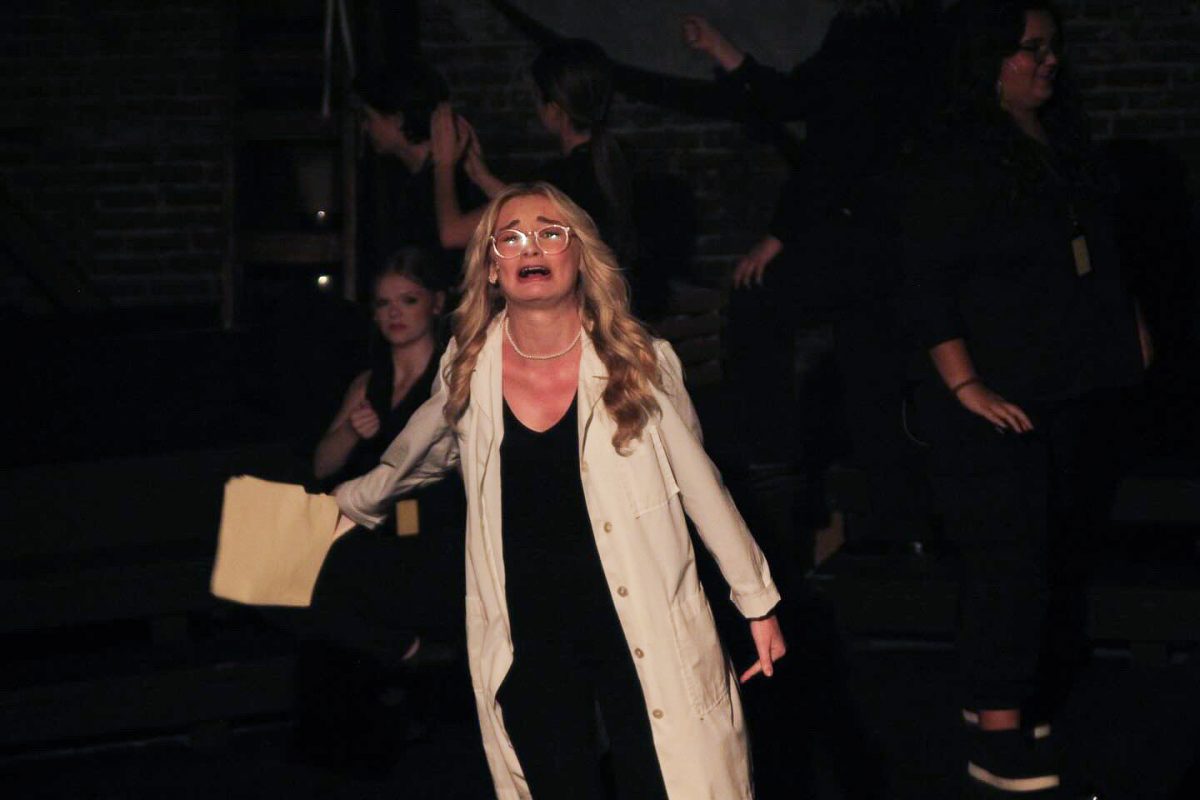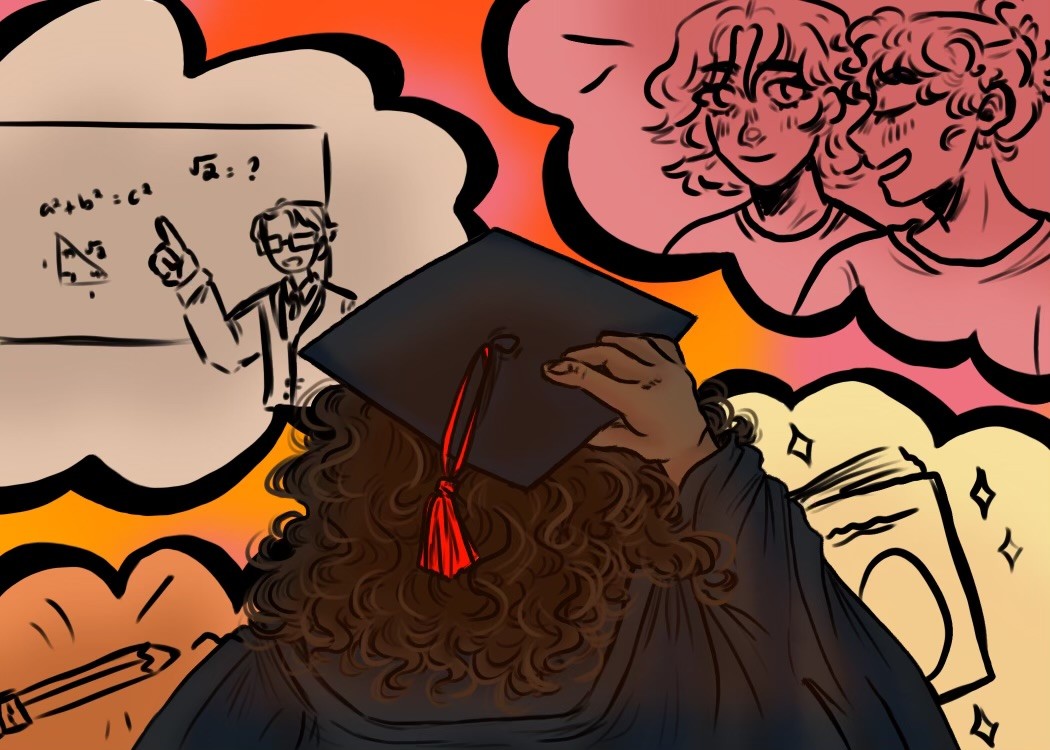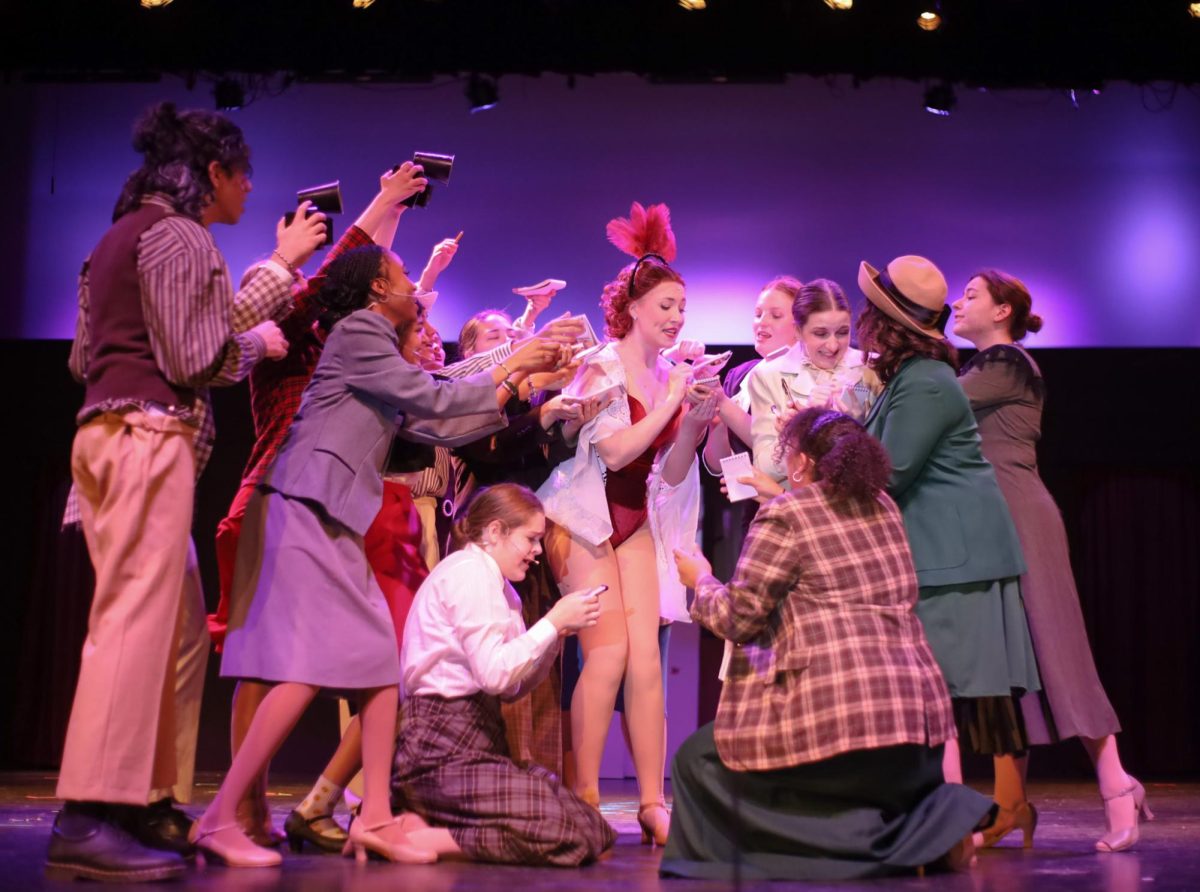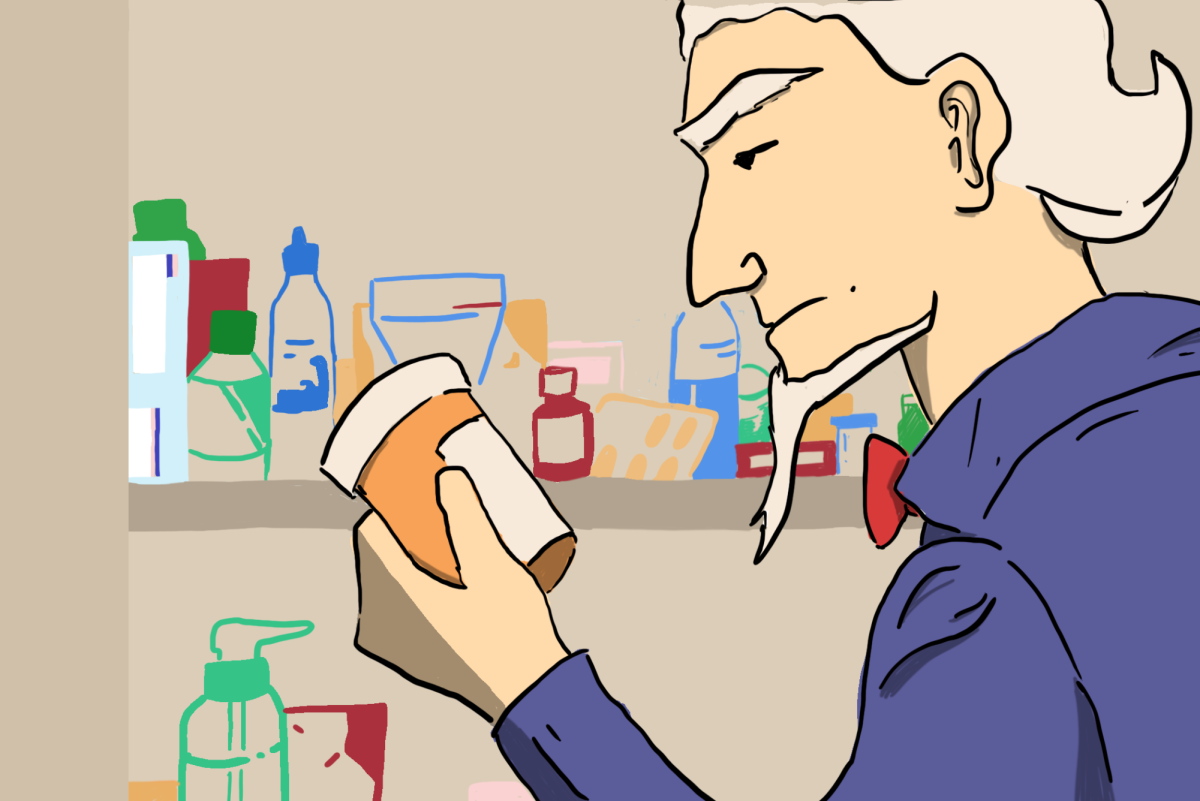Fighting the system

Everyone knows someone with a story. Constant reports of harassment, bullying, and fights circulate—to the point that some have begun to wonder how much of a “safe space” the classroom really is.
Throughout elementary and middle school, all students hear the same advice over and over again: “Tell a trusted adult.” But as they enter high school, this mantra fades into obscurity as many lose faith in the ability of the administration to actually aid them, or fear that they may even end up worse off.
But what happens when students have had enough?
The actual process of reporting an incident appears fairly straightforward in theory, but many find themselves dissatisfied or lost when they actually commit to the process.
Jordan* witnessed a classmate’s repeated comments about sexually assaulting both women in general and a specific student.
Unsure of the severity of the incident, she reported it to a teacher in the hopes that they could resolve it in the classroom rather than the dean’s office.
“There’s a lot more you’d have to do [to report an incident to administration], and I’ve never had to go that far before,” Jordan said. “And now it’s calmed down a bit because it’s the end of the year. So I don’t really see a point anymore.”
I [didn’t] want this person to know that I reported them. Because then that could end up getting me punched in the face, and I don’t want that.
— Jordan*
Even though she knew that she was not going directly to administration, Jordan still felt hesitant about sharing what she had heard.
“I [didn’t] want this person to know that I reported them,” Jordan said. “Because then that could end up getting me punched in the face, and I don’t want that.”
Jordan stayed in the classroom until most of the other students had left, then approached the teacher and recounted what the other student had said. Confident that an adult would handle the situation, and hoping that the student would at least quiet down, Jordan left.
“They chilled out for a bit, and then they started doing it: disrupting the class again, talking again, about all of the same stuff,” Jordan said.
*name changed for privacy and safety
There is only so much that a teacher can do—in most situations, a student is referred to administration.
“If there’s something important to report, they need to talk to administration,” dean Kelly Fate-Quinn said. “We’re here to help. So there’s nothing to be afraid of, and sometimes it’s just a conversation that we can have. And when the student leaves my office, we don’t have to do anything further.”
Upon entering Fate-Quinn’s office, the student will fill out a witness statement recounting details of the incident. Though administration provides support through most of the process, students tend to make mistakes on witness statements more frequently than any other part of the procedure.
If there’s something important to report, they need to talk to administration. We’re here to help. So there’s nothing to be afraid of, and sometimes it’s just a conversation that we can have. And when the student leaves my office, we don’t have to do anything further.
— Kelly Fate-Quinn, dean
Witness statements need to include clear, exact information, including the names of every person involved. Vague statements, or the inclusion of non-specific pronouns (e.g. writing “He threatened him,” as opposed to “Jack threatened Ralph”) can seriously hinder the deans’ ability to act on a student’s word.
After going over the witness statement (and often speaking with the student writing it or getting them to clarify any ambiguities), Fate-Quinn or another administrator will call up each student mentioned and interview them. These students then have to write their own statements, and if they mention anyone else by name, the deans will also speak with them.
“We can get a big picture of what’s really happening because there’s always your story, my story, and then the truth,” Fate-Quinn said. “So with all of that, we take all of the stories and piece one big story together.”
Depending upon the situation and the severity, administration has the ability to implement one of several different solutions, but they always try to communicate with the students affected.
“Sometimes it’s not that serious, and it’s something we can [work] out with a restorative circle: just a misunderstanding and someone apologizing,” Fate-Quinn said. “Sometimes it’s a no-contact contract. Sometimes it’s suspension. It just depends [on] what it is. So we follow the code of conduct when we get to the bottom of whatever the situation is.”
Despite the theoretical ease of this system, the common sentiment remains that the administration’s attempts to help are ultimately ineffective—or that the administration simply does not care enough.
John*, a transgender boy, experienced sexual harassment from another student during his freshman year, when he still presented as somewhat feminine. The older student—likely not knowing John’s gender identity—would repeatedly tease him or take actions that made him uncomfortable.
In one instance, the student wrote something inappropriate and bothersome in John’s notebook. The two were not close friends, and certainly did not have the kind of relationship in which this kind of action would be accepted as normal.
“I think he and his friends saw it as a joke because they didn’t think I would report it,” John said. “And if they did, they probably guessed that nothing would happen.”
The student’s actions became more severe and progressed beyond comments and notes.
“So, I happened to be wearing shorts that day,” John said. “I think you can guess.”
The student touched John’s thigh, and after not facing any repercussions that day, began to do it more frequently, to the point that others began to notice John’s discomfort.
“Throughout the year, I had been making jokes about it,” John said. “I don’t know what people thought, but someone eventually connected the dots and was like, ‘Dude, you good?’ So then I told them.”
When [my mother] heard that I had reported him, she said, ‘Maybe he had a crush on you.’ That’s why I didn’t tell them.
— John*
Encouraged by his friends, John went to 7-100 and filled out a witness statement. Administrators asked a few of John’s classmates to also provide statements, and eventually, the student who had harassed him was called in.
However, at least from John’s perspective, the administration ultimately did nothing to stop the harassment. It continued throughout the year, he heard little about the results of his report, and he was not taken seriously by those close to him.
“When [my mother] heard that I had reported him, she said, ‘Maybe he had a crush on you,’” John said. “That’s why I didn’t tell them.”
Jane* also became uncomfortable with another student and found the administration’s response lacking.
“I became friends with this person who ultimately made me uncomfortable and had little to no understanding regarding personal boundaries,” Jane said. “This led to things escalating to a point I wasn’t exactly fond of.”
At a certain point, the other student began to take photos of Jane without her permission. She confronted him, but he refused to stop.
“I took matters into my own hands and began asking people to help, yet no one did,” Jane said. “So my last resort was to contact admin and let them be aware of the situation.”
If I had been in bigger danger and actually hurt or anything, would they have done something? I constantly ask myself that question.
— Jane*
Jane was in a tough situation, as she did not want her parents to find out what had happened, but she hoped that the administration would do something to handle it or at least continue to talk with her to ensure her safety.
“If I had been in bigger danger and actually hurt or anything, would they have done something?” Jane said. “I constantly ask myself that question.”
*names changed for privacy and safety
For students in situations similar to John’s or Jane’s, Fate-Quinn would recommend that they make a second trip to her office so that they do not miss the chance to receive help.
“Everyone that comes across my desk, we talk to, so if they weren’t spoken to, I would suggest [that they] come back and follow up,” Fate-Quinn said. “Because there [are] days that I’m not here and someone else was handling it, so if they feel like they didn’t get heard, definitely come back and see me.”
If a student feels uncomfortable talking with an administrator, Fate-Quinn urges them to set aside their concerns and speak up, but she can make accommodations—and has in the past—for students who would rather have a teacher or counselor there to support them. This especially comes into play when an incident has severely affected a student’s mental health, as many first tell a guidance counselor about the occurrence before realizing or learning that they should speak with a dean in order to implement a solution.
This was the case for sophomore Tyler Harris, after he repeatedly endured harassment from a fellow student due to a pride flag that Harris wore on his jacket.
“He would walk behind me until we got to the double doors,” Harris said. “Then he would run ahead of me, stop me by turning around to face me and flick me off. To add, he would then call me a ‘f***ing poser’ and then run off before I had time to react. And he would do exactly that every single time.”
Once he got on the bus, Harris would try to process what the other student had said. Over time, this caused him significant stress and anxiety.
Harris, supported by his friends, knew that he wanted to report the student, but he also knew that administration would need specific details. Once he learned the boy’s name, he began the process.
“Luckily, I kept [mental health counselor James Bartlett’s] room number in my phone every day just in case any of my friends needed to reach out or talk to him,” Harris said. “I never imagined I would need him.”
Harris asked one of his teachers if he could go to Bartlett’s office.
“I walk[ed] down to his office and knock[ed] on the door,” Harris said. “He was busy but he told me to wait a few minutes on the bench next to his office. I did and when he led me into his office I cried as soon as I sat down.”
I have more confidence in the system than I used to because of Bartlett, but I still don’t have much. It’s hard to feel like you can trust the system when the state is trying to limit my experiences and existence.
— Tyler Harris, 10
With Bartlett’s help, Harris spoke with a dean and filed a witness report. He eventually received a no-contact contract, which stated that the two could not interact, and imposed consequences if the other student violated it.
“I have more confidence in the system than I used to because of Bartlett, but I still don’t have much,” Harris said. “It’s hard to feel like you can trust the system when the state is trying to limit my experiences and existence.”
In spite of some limitations, Harris’s story is far more successful than some. The contract only lasted one year, but after reporting the student once, Harris feels slightly more assured that he will be left alone and that if not, there is at least a system in place to deal with it.
“[Bartlett] helped me tremendously,” Harris said. “However I still feel unsafe and cautious around the student that harassed me. I feel like school should be a safe space, especially for students that have a complicated home life.”
Your donation will support the student journalists of Hagerty High School. Your contribution helps us publish six issues of the BluePrint and cover our annual website hosting costs. Thank you so much!
















